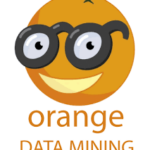
Conducting research involves a systematic process of gathering, analyzing, and interpreting information. There are several steps involved in research, and various AI tools can assist with each of these steps, making the process more efficient and accurate.
Below is an outline of the research process along with AI tools that can support each stage.
- It involves: Identifying the specific problem or question that needs to be addressed.
- AI Tools:
GPT-based tools (like ChatGPT): Can help in brainstorming and refining the research question.
- Research Databases (Google Scholar, PubMed): AI-powered search engines can help suggest related topics or recent research relevant to your query.
- It involves: Reviewing existing research and gathering background information.
- AI Tools:
- Semantic Search Tools: AI can help with finding papers and articles that are most relevant to your research area.
- Connected Papers: An AI-powered tool that visualizes the relationships between papers and helps you discover new research.
- Zotero/EndNote: These citation management tools have AI features that help with organizing and suggesting articles.
- Semantic Search Tools: AI can help with finding papers and articles that are most relevant to your research area.
- It involves: Developing testable predictions based on the problem and literature.
- AI Tools:
- ChatGPT or GPT-4 models: Can assist with generating hypotheses based on existing research, offering suggestions for what to test next.
- Idea Generation Tools: Tools like Frase or WriteSonic use AI to help generate creative ideas for research.
- It involves: Deciding how to collect and analyze data, including the type of study (qualitative, quantitative, etc.).
- AI Tools:
- SurveyMonkey or Typeform: These AI-enhanced survey platforms help with creating surveys and analyzing data.
- IBM SPSS or RStudio: For statistical analysis, some tools use AI to automate data processing and suggest meaningful correlations or trends.
- It involves: Gathering the data required for the study (e.g., surveys, experiments, secondary data).
- AI Tools:
- Scrapy or BeautifulSoup: These AI-backed web scraping tools can automatically gather large amounts of data from websites.
- AI-Powered Surveys: Tools like Google Forms with AI can suggest question formats and analyze responses as they are collected.
- It involves: Processing and analyzing the collected data to draw conclusions.
- AI Tools:
- Excel with AI Add-ins: Features like Power Query and automated data analysis can assist in organizing and interpreting the data.
- Tableau / DataWrapper: An AI-powered data visualization tool to help identify trends and patterns.
- AI-based Statistical Tools (e.g., Orange): These platforms use AI to assist in machine learning and statistical analysis for complex datasets.
- It involves: Drawing conclusions from the data analysis and relating it back to the research question.
- AI Tools:
- It involves: Organizing and presenting the research findings clearly, usually in a report, paper, or presentation.
- AI Tools:
- Canva: AI-based graphic design tools that help visualize results, create infographics, and make presentations.
- LaTeX with AI Plugins: For academic papers, AI tools help format and structure the document according to specific academic standards.
- AI in PowerPoint (e.g., Designer feature): Helps suggest slide layouts and design elements based on the content.
- It involves: Citing sources properly in your research and maintaining an organized reference list.
- AI Tools:
- Zotero or Mendeley: Use AI to automatically suggest and format references as you add citations to your work.
- Cite This For Me: An AI tool that helps generate accurate citations in different formats (APA, MLA, Chicago, etc.).
- It involves: Reviewing your research paper for clarity, accuracy, and formatting.
- AI Tools:




















Summary of Key AI Tools and Their Functions:
- Research Assistance: ChatGPT, Connected Papers, Google Scholar, Zotero
- Idea Generation: ChatGPT, Frase, WriteSonic
- Data Collection & Analysis: Scrapy, SurveyMonkey, Tableau, SPSS, RStudio
- Data Interpretation: ChatGPT, Grammarly, LaTeX with AI plugins
- Presentation: Canva, PowerPoint AI, LaTeX
- Citation Management: Zotero, Mendeley, Cite This For Me
- Editing & Proofreading: Grammarly, QuillBot, Turnitin
Final Thoughts on AI in Research
AI tools are revolutionizing how researchers approach and execute their work. From idea generation and literature review to data analysis and writing, AI can save time, improve accuracy, and enhance creativity. While AI won’t replace human judgment or critical thinking, it can support researchers in tedious or complex tasks, enabling them to focus more on the intellectual aspects of their work.
Research Support Service Team





For any query related to Research Support Services, feel free to contact us.
Location: At Ground Floor, Right hand side of Entrance of Dr. B. R. Ambedkar Central Library or fill the google form.

